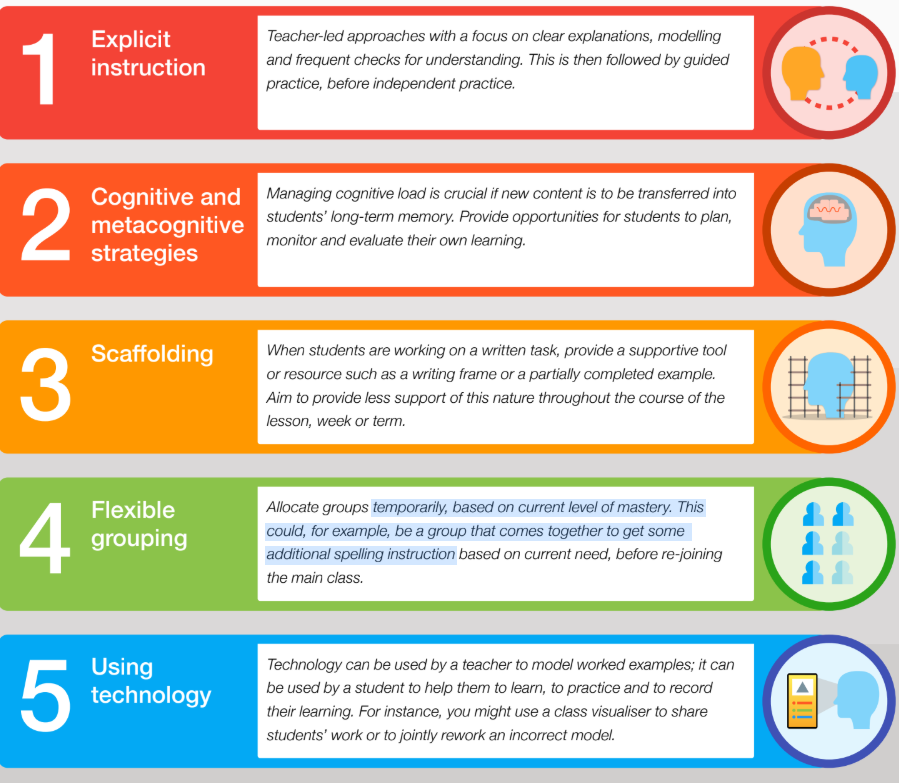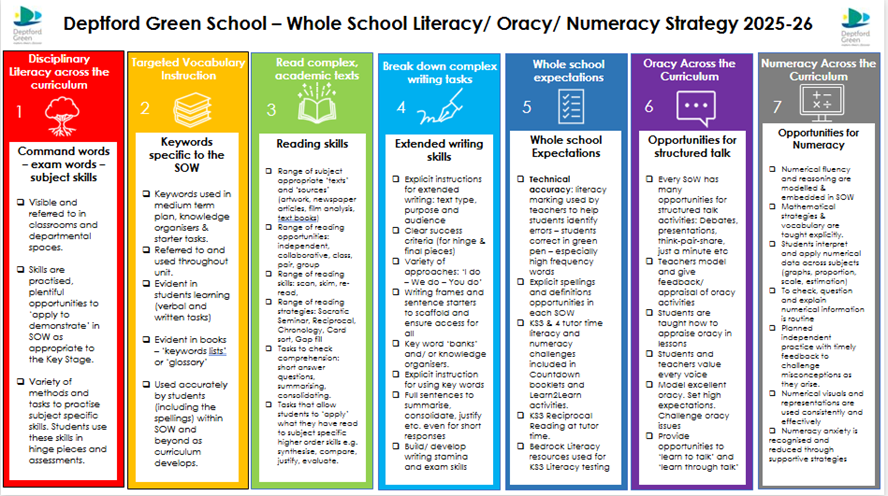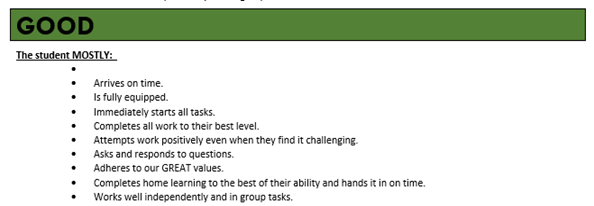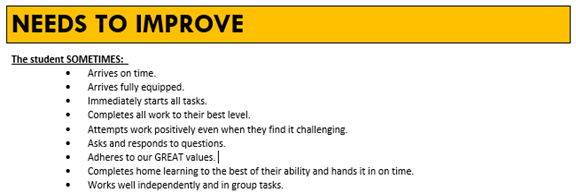Teaching and Learning
Great Teaching and Learning Policy Rationale
Deptford Green School aspires to be a vibrant and dynamic learning environment in which every learner is given the opportunity to fulfil their academic potential and achieve their ambitions for the next stage of their educational journey. We want our students to make a positive contribution to the school and wider community. The school aims to develop students academically, socially and emotionally and provide them with the skills and attributes needed to live happy, safe and productive adult lives.
This policy provides the framework for teachers to teach and students to learn in an environment that is committed to excellence. This policy is a working document and is therefore best read electronically. Helpful links and resources will be added periodically. Under the Equality Act (2010) the school acknowledges our legal duty to make ‘reasonable adjustments’ to practice and policy for children with SEND / EAL. Accessing learning through high quality teaching should be inclusive of learners of all abilities. The principles of Quality First Teaching should be evident in every lesson.
Research Based Teaching and Learning Pillars
At Deptford Green we expect every lesson to be an engaging, compelling, challenging and enjoyable learning experience for both the teacher and students. To ensure a high quality and consistent approach, teachers use four principles of teaching and learning, based on the most recent educational research. The primary research and training text used is One Pagers by Jamie Clark, which brings together research from a number of key educationalists. Our GREAT Teaching and Learning Taxonomy ensures consistent high expectations in each classroom, every day.
|
|
THE WHY: It is widely evidenced that including periodic reviews of knowledge, skills and understanding learnt in the last week or month improves the rate of forgetting. Links to prior knowledge and learning are used frequently in lessons, allowing students to build on the foundations they already have. This stage is also an opportunity to link learning to the ‘big picture’ and real world. |
|
|
THE WHY: New learning is presented to students in a logical, clear way that is memorable for them. This key part of the structure is when the teacher (as the expert) transfers knowledge, skills and understanding to the students through clear explanation, instruction and modelling. Practical demonstration, co-construction and visual representation are some of the ways this might be done in classrooms. New learning is chunked and reviewed regularly. This also encompasses adaptive teaching strategies. High Expectations, Praise & Reward. |
|
|
THE WHY: Reviewing understanding through questioning takes place throughout a lesson to inform further teaching. Whiteboards and multiple-choice quizzes are examples of how assessment for learning might take place to check understanding. If there are misconceptions, these will be addressed through re-framing and teaching. Cold calling and asking probing questions to a good ratio of students help us gauge understanding and plan next steps. |
|
|
THE WHY: ‘For students to reach the point where they can apply their learning with a level of fluency requires an element of often extensive practice’ (Sherrington). Across a series of lessons, opportunities for extensive practice is provided. During this time, the teacher will give feedback to individuals and address misconceptions. Gradual reduction of scaffolding will take place over time to develop full independence. |
SEN, EAL and PP Learners
To maximise outcomes for SEN, EAL and Pupil Premium students, we have embedded the EEF’s ‘5 a Day’ approach into the GREAT Teaching and Learning Pillars. Explicit instruction, cognitive and meta-cognitive strategies and scaffolding are central to our teaching and learning, training and monitoring. Specific needs of SEN and EAL students are detailed on Pupil Passports; these include summaries of students’ needs and strategies for teachers to use. Careful consideration is taken by teachers when preparing seating plans and planning lessons. Some SMART interventions are provided for students who require additional literacy and numeracy support, and students who are new to the country to accelerate initial language acquisition.

Higher Attainers
Challenge for all is central to our Teaching and Learning policy, regardless of starting point or attainment levels. Students who are working at a high academic level, or those entering with High Prior Attainment are also challenged every day, allowing opportunities for deeper thinking and exposure to higher order criteria within subjects. As part of our policy, at each appropriate stage of a lesson, students are posed more open questions which require higher order thinking, known as STAR tasks. Whilst these tasks are posed to the whole class, they are an opportunity for students who are more able to tackle challenging questions regularly, encouraging extension of thought. Through graduated questioning and ‘Cold Calling’ teachers also challenge and probe students’ understanding. Students are regularly exposed to criteria relating to ‘Greater Depth’ standard in Key Stage 3 and grades 7-9 at GCSE during tasks and assessments, to ensure they have the substantive, procedural and disciplinary knowledge to reach top grades.
Curriculum
We ensure that departments have established challenging and engaging curriculums that effectively assess and build on prior knowledge. At Key Stage 3, clear mapping and sequencing of substantive, procedural and disciplinary knowledge, ensures that students have access to rich curriculums that prepare them for Key Stage 4 and beyond. At Key Stage 4, the teaching of GCSE specifications has been mapped and sequenced to ensure each student gets the best outcomes possible.
Literacy, Oracy and Numeracy
When curriculum is planned, literacy and numeracy skills are embedded in schemes of work and lesson resources. Below are the Deptford Green Literacy pillars. We have adapted our strategy from the EEF for Literacy and Numeracy. Our Oracy strategy is taken from the Voice 21 principles. The implementation of these strategies is monitored throughout the year by various members of the Teaching and Learning team, and regular training related to these elements takes place across the year as part of teachers’ professional development. Additional Literacy and Numeracy intervention is provided for students who are working significantly below their age-related expectations. We use the Bedrock Literacy Programme for Key Stage 3, focussing on building vocabulary and reading proficiency. At Key Stage 4, small group intervention focussing on speed reading for GCSE access is the priority.

Home Learning
Key Stage 3
We have developed a clear approach to home learning at Key Stage 3 from 2025, which standardises the quality and quantity of Home Learning set for all students. This is designed to enhance the progress of all students and develop independence. Additional Independent Learning platforms such as SparxMaths and Educake are used in addition to the Home Learning booklets. Homework booklets are provided to students twice a half-term and include tasks from each subject. These tasks will also be logged on ClassCharts, so students and parents can monitor home learning effectively. Additional tasks may be set in addition to this.
Key Stage 4
At Key Stage 4, home learning tasks will relate directly to specifications. Online platforms will continue to be used for Key Stage 4 in Maths and Science which consolidate and revise content. In many other subjects, homework booklets will be used which relate to particular topics, exams or units. These tasks will also be logged on ClassCharts, so students and parents can monitor home learning effectively.
Marking, Assessment and Feedback
Identified pieces of work, known as ‘Hinge Assignments’ have been designed and implemented by departments. They aim to effectively assess learning following a series of lessons. Following these hinge assignments, formative feedback is given to students. All classroom-based departments that use books have now developed green feedback sheets following each of these assessments to streamline this feedback and make it more effective and consistent. Students are required to respond to this feedback using green pen. Feedback tasks are designed to address misconceptions or to give opportunities for students to provide higher-order responses.
More formal assessment periods are identified for all year groups across the school calendar, ensuring all students have an opportunity to experience a full cohort exam experience each year. At Key Stage 3, a number of subjects will run these formal exams, and at Key Stage 4, these take the form of PPEs (Pre-public exams) which give students at least three opportunities to experience full exams in preparation for their final exams. These take place in Summer 2 (end of Year 10), Autumn 2 and Spring 2 (in Year 11). Following these exams, we hold results events and give students timely and constructive feedback on which to base future lessons and revision.
Great Effort
Our expectations of students must be consistently high. We use the following descriptors to ensure our students always get the most out of lessons. These descriptors are used for data drops and when students are being monitored on effort report.








